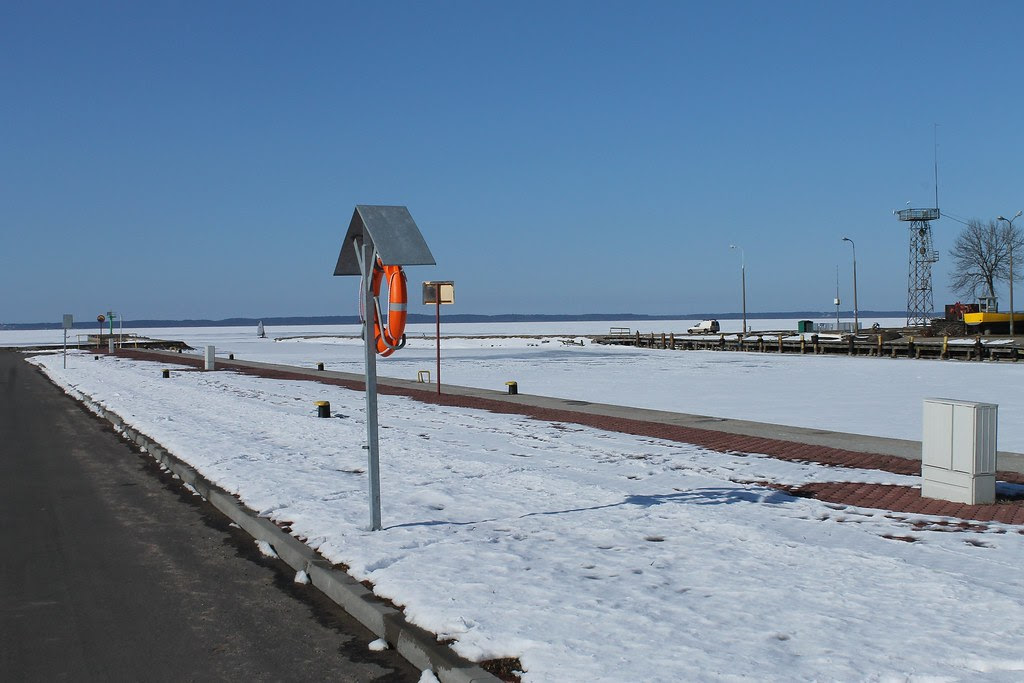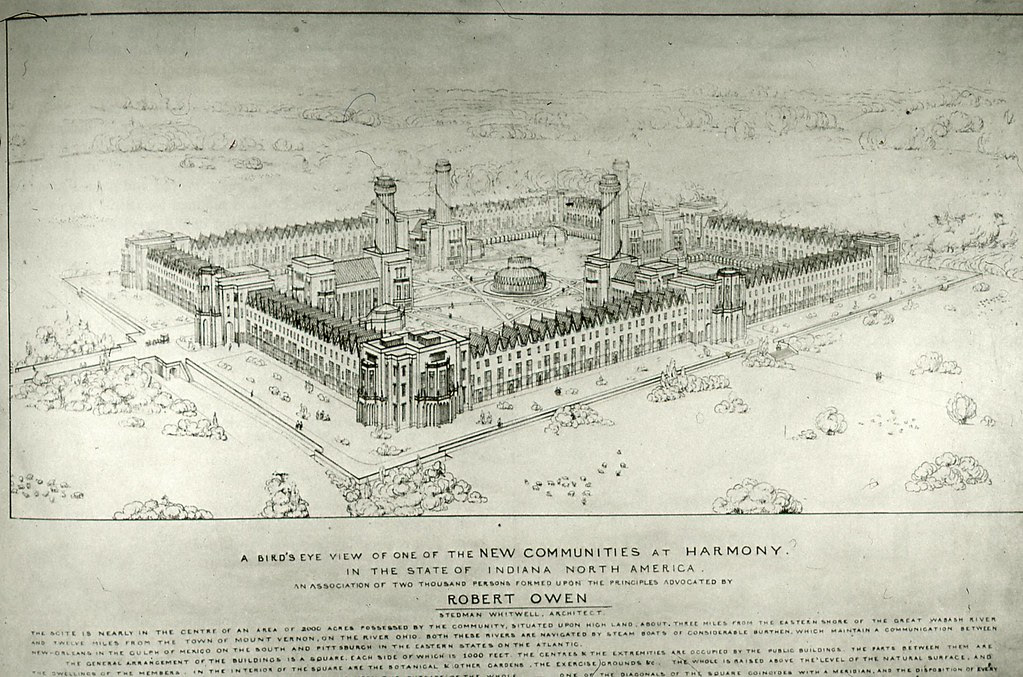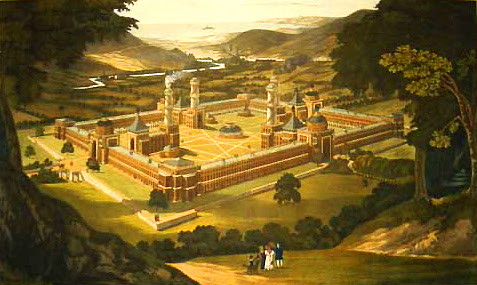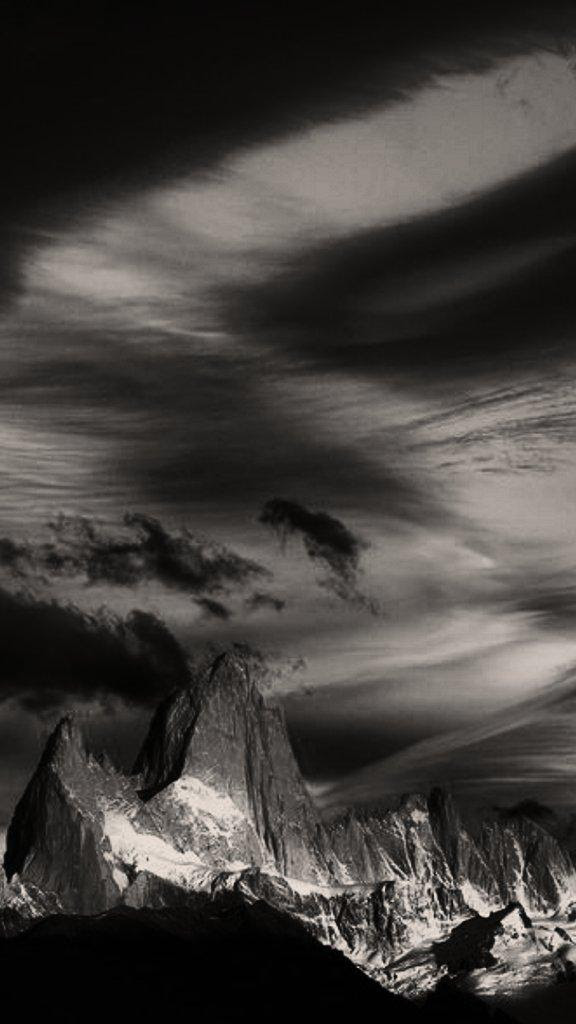
Zalew Wislany, Warmia, Poland: photo by LeszekZadio, 19 June 2009
Island where it all becomes clear
solid ground beneath your feet
.. the only
roads are those that offer access
bushes
bend beneath the weight of proofs
the
tree of valid supposition grows here
with branches disentangled since time immemorial
with branches disentangled since time immemorial
.. the
tree of understanding, dazzlingly straight and simple
.. sprouts by the spring called now I get it
.. sprouts by the spring called now I get it
the thicker
the woods, the vaster the vista
the valley of obviously
the valley of obviously
if any
doubts arise, the wind dispels them instantly
echoes stir unsummoned
and eagerly explain all the secrets of the worlds
on the right a cave where meaning lies
on the left the lake of deep conviction
truth breaks from the bottom and bobs to the surface
unshakable confidence towers over the valley
its peak offers an excellent view of the essence of things
for all
its charms, the island is uninhabited
and the faint footprints scattered on its beaches
turn without exception to the sea
and the faint footprints scattered on its beaches
turn without exception to the sea
all you
can do here is leave
and plunge, never to return, into the depths
and plunge, never to return, into the depths
into unfathomable life
Wislawa Szymborska (1923-2012): Utopia (1976), translated by Stanislaw Baranczak and Clare Cavanagh

Sunrise swan, Warmian-Mazurian, Poland: photo by
Wyspa na której wszystko się wyjaśnia.
Tu można stanąć na gruncie dowodów.
Nie ma dróg innych oprócz drogi dojścia.
Krzaki aż uginają się od odpowiedzi.
Rośnie tu drzewo Słusznego Domysłu
o rozwikłanych wiecznie gałęziach.
Olśniewająco proste drzewo Zrozumienia
przy źródle, co się zwie Ach Więc To Tak.
Im dalej w las, tym szerzej się otwiera
Dolina Oczywistości.
Jeśli jakieś zwątpienie, to wiatr je rozwiewa.
Echo bez wywołania głos zabiera
i wyjaśnia ochoczo tajemnice światów.
W prawo jaskinia, w której leży sens.
W lewo jezioro Głębokiego Przekonania.
Z dna odrywa się prawda i lekko na wierzch wypływa.
Góruje nad doliną Pewność Niewzruszona.
Ze szczytu jej roztacza się Istota Rzeczy.
Mimo powabów wyspa jest bezludna,
a widoczne po brzegach drobne ślady stóp
bez wyjątku zwrócone są w kierunku morza.
Jak gdyby tylko odchodzono stąd
i bezpowrotnie zanurzano się w topieli.
W życiu nie do pojęcia.
Wislawa Szymborska (1923-2012): Utopia (1976)

Frombork, Warmia, Poland: photo by LeszekZadio, 8 August 2013

Frombork, Warmia, Poland: photo by LeszekZadio, 8 August 2013

Frombork, Warmia, Poland: photo by LeszekZadio, 8 August 2013

Landscape with fences. Northeastern Poland, Podlaskie region: photo by Jerzy Radimersky, 12 April 2013

Zamarzniety Kawalek Baltyku (Zalew Mislany) Stanczyki Stanczyki (northern Poland): photo by Patryk Hejduk (paprycjusz), 31 March 2013

Zamarzniety Kawalek Baltyku (Zalew Mislany). Tolkmicko, Warmian-Masurian, Poland: photo by Chris ZaMaloCzasu (xpisto1), 17 March 2013

Artist's impression of New Moral World, Robert Owen's ideal for a utopian community at New Harmony, Indiana (1825); Owenites fired bricks to build it but construction never took place: drawing by Stedman Whitwell, architect (J.R. James Archive, University of Sheffield)

A bird's eye view of a community in New Harmony, Indiana, as proposed by Robert Owen: drawn and engraved by F. Bate, London 1838; published by "The Association of all Classes of all Nations", at their institution, 69, Great Queen Street. Lincoln's Inn Fields, London, 1838. Inscribed at bottom of plate: A Bird's Eye View of a Community, as proposed by Robert Owen Esq.re is respectfully dedicated to the following classes of society: To the Landowners, as being the only means whereby their Estates can be rendered permanently productive, and their Rents secure. To the Capitalists, as offering the safest speculation, and most gratifying ways of investing their surplus Capital, without risk of failure. To the Clergy, and Instructors of Mankind, as the only and speedy means of bringing about that great desideratum they have so much at heart, namely, the suppression of Vice & Error, by the removal of the causes of Crime (Ignorance & Poverty), the dissemination of Truth, & the establishment of Virtue. To the industrious Wealth Producers, as affording the only arrangements, whereby they can secure their true and rightful position in Society, and the just & honest participation in the Wealth created by their talents and industry. And lastly, to the Government of the British Empire, shewing the arrangements, whereby the duties of Government may be rendered safe, easy, and delightful, instead of as heretofore, being one of danger, difficulty, error, confusion and disatisfaction; image by Michael Gäbler, 6 April 2006

New Harmony on the Wabash River (New–Harmony am Wabash): Karl Bodmer (1809-1893), 1832-33, from Bodmer: Reisen in das Innere Nordamerikas 1832-1834, published 1840-41; image by Michael Gäbler, 26 May 2006
New-Harmony aus Wabash (New Harmony on the Wabash): aquatint by Karl Bodmer (1809-1893), from Maximilian, Prince of
Wied’s Travels in the Interior of North America, during the years
1832–1834: Prince Maximilian of Wied, published by Rudolf Ackermann,
1839; image by John Sweeney, 21 February 2012

Accurata Utopia Tabula (Karte des Schlaraffenlandes): Matthäus Seutter (1678-1757), via Barry Lawrence Ruderman Antique Maps; image by Goustien, 19 February 2009

The Island of Utopia: Ambrosius Holbein, 1518, woodcut, 17.8 x 11.8 cm (Öffentliche Kunstsammlung, Basel)

Bridal Procession in a Spring Landscape: Adrian Ludwig Richter, 1847, oil on canvas, 93 x 150 cm (Gemäldegalerie, Dresden)

Christine de Pisan: The Book of the City of Ladies: French Miniaturist, c. 1405, manuscript (Ms. français 607), 360 x 270 mm (Bibliothèque Nationale, Paris)
"@PaisajeGeo: Hay que respetar la naturaleza" #UTOPIA: image via Cuchitril @facumosqueira, 1 January 2015
Lugares de #Utopia en la Naturaleza El Bosque Bamboo en Japón @subversivos: image via Isabel Aranjuez @isaranjuez, 7 January 2015

Meditating on the 20th century … La Jetée, Chris Marker's much-celebrated short film, made from a series of still images: photo by British Film Institute via The Guardian, 15 April 2014
MT "@guardian: Are you a commuter? Share your experiences" #dystopia: image via ChrisWhiteWrites @chriswhitewrite, 28 January 2015
Read my new #blogpost about #utopia (the perfect society; NOT the TV show) and whether its really what its cut out: image via theLEGEND @anya_felix11, 13 January 2015
Can
we see better days ahead or is #dystopia our destiny? The Real Culture
War #Collectivism: image via Stephanie L. Schmidt @QuoteStephanie, 14
January 2015










4 comments:
if anything, it is in the least difficult. (well, we make it so.)
i can't help but remember a time when i took part in a cross-cultural venture to celebrate the indigenous peoples of north america. in a super market in who knows where a stranger came up to me, a native man, and asked me why i was ashamed of being white. he told me that it was too easy to be ashamed and leave it there. well, didn't that knock me right off any subconscious self pity pony!
do you know amy clampitt's "hermit thrush"? i've been keeping it close lately as it has the power to "buff and rarefy."
A HERMIT THRUSH
Nothing’s certain. Crossing, on this longest day,
the low-tide-uncovered isthmus, scrambling up
the scree-slope of what at high tide
will be again an island,
to where, a decade since well-being staked
the slender, unpremeditated claim that brings us
back, year after year, lugging the
makings of another picnic—
the cucumber sandwiches, the sea-air-sanctified
fig newtons—there’s no knowing what the slamming
seas, the gales of yet another winter
may have done. Still there,
the gust-beleaguered single spruce tree,
the ant-thronged, root-snelled moss, grass
and clover tuffet underneath it,
edges frazzled raw
but, like our own prolonged attachment, holding.
Whatever moral lesson might commend itself,
there's no use drawing one,
there's nothing here
to seize on as exemplifying any so-called virtue
(holding on despite adversity, perhaps) or
any no-more-than-human tendency—
stubborn adherence, say,
to a wholly wrongheaded tenet. Though to
hold on in any case means taking less and less
for granted, some few things seem nearly
certain, as that the longest day
will come again, will seem to hold its breath,
the months-long exhalation of diminishment
again begin. Last night you woke me
for a look at Jupiter,
that vast cinder wheeled unblinking
in a bath of galaxies. Watching, we traveled
toward an apprehension all but impossible
to be held onto—
that no point is fixed, that there's no foothold
but roams untethered save by such snells,
such sailor's knots, such stays
and guy wires as are
mainly of our own devising. From such an
empyrean, aloof seraphic mentors urge us
to look down on all attachment,
on any bonding, as
in the end untenable. Base as it is, from
year to year the earth’s sore surface
mends and rebinds itself, however
and as best it can, with
thread of cinquefoil, tendril of the magenta
beach pea, trammel of bramble; with easings,
mulchings, fragrances, the gray-green
bayberry’s cool poultice—
and what can’t finally be mended, the salt air
proceeds to buff and rarefy: the lopped carnage
of the seaward spruce clump weathers
lustrous, to wood-silver.
Little is certain, other than the tide that
circumscribes us, that still sets its term
to every picnic—today we stayed too long
again, and got our feet wet—
and all attachment may prove at best, perhaps,
a broken, a much-mended thing. Watching
the longest day take cover under
a monk’s-cowl overcast,
with thunder, rain and wind, then waiting,
we drop everything to listen as a
hermit thrush distills its fragmentary,
hesitant, in the end
unbroken music. From what source (beyond us, or
the wells within?) such links perceived arrive—
diminished sequences so uninsistingly
not even human—there’s
hardly a vocabulary left to wonder, uncertain
as we are of so much in this existence, this
botched, cumbersome, much-mended,
not unsatisfactory thing.
Tom,
Life is indeed unfathomable, and in between a Guantanamo diary and the next Rosetta, there is that bland narrative, and inspection of a cause-and-consequence, one that is too one-dimensional to answer; but enough to question. Questions we will continue to ask as disgruntled commentators.
Valley of Obviously - horrific
Tom,
A beautiful visual response to Szymborska's poem. I always appreciate your inclusion of the original poem along with the translation. Here it serves as a reminder of what an incredible service Stanislaw Baranczak, who passed away very recently, has done for English readers of Polish poetry. So have you.
-David
erin, Manik and David, many thanks -- so glad others share my joy in the work of this extraordinary writer, a world poet in the best sense.
There are some poets who seem exciting when one reads them in youth, then others to replace them in our private galleries of respect are encountered in middle age, and then there are poets whose virtues one cannot really grasp until life has had its weird way with one and the excitement is no more than a mere memory, the respect well enough but the life-knowledge, everything. The best example of that for me would be this poet. Her work was produced in circumstances no poet who has not lived under a totalitarian regime can really expect to understand -- though as our own form of society continues to busy itself with the process of transformation from democracy to a universal dehumanizing mass obeisance before a triumphant global technological corporate authority, perhaps it becomes less difficult to see how the only way for Szymborska to persist with conscience in her art was to devise a strategy of indirection that allowed her to soften the hard truths into a shape more easily mistaken for compliance. And indeed it's her courage -- and of course her adroitness -- in working against the grain that is, for me, her great poetic strength. We simply don't see that in poets of great gifts any more; in our present culture, poetry that challenges the status quo, and rejects the bought situations that come with compliance, hasn't got a chance; and if by some miracle a poet of gifts and courage did arise, there would be one more quality needed, a sense of humour, in particular a sense of humour that does not take itself too seriously, and is based on an intrinsic modesty that regards things like awards and prizes -- in Szymborska's case, eventually, a Nobel Prize -- as pure encumbrances. Bigging yourself up, the essential operation among famous poets now, was inconceivable to her; she considered such inflation silly.
"When I write I always feel as if somebody was standing behind me and making funny faces. That is why I always keep focused and I avoid, as much as I may, big words".
If only the wisdom of that statement had to be digested before an eager aspirant was bestowed an MFA certificate, that certificate might perhaps begin to mean something.
David is right on when he points out that Szymborska has been served well by her translators, and this fact, along with the universality and wit and deep human truth of her poems, have made them surprisingly accessible to non-Polish-speaking audiences.
And glad you appreciated seeing the original version, your saying that makes it worth having taken the trouble to dig it up.Though we don't know Polish, I've found the Polish-language originals extremely useful in helping to get a sense of what Szymborska's doing, and also a sense of what her translators have done with that. At very worst, the original would always provide at least a visual framework. Seeing how the translators have re-disposed her blocks of statement, we can feel them working with units of thought much as she would have had to be working -- and we in turn, later, working with both her and them.
Post a Comment